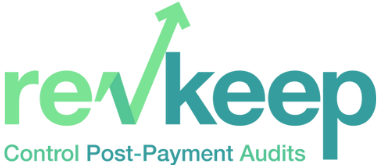RAC Audit Process: Essential Dos and Don’ts
Introduction:
Facing a RAC (Recovery Audit Contractor) or Payor Audit can be a daunting task for any healthcare organization. These audits are conducted to ensure compliance with billing and coding regulations, and they can significantly impact a facility’s revenue cycle management. To navigate through this challenging process successfully, it is crucial to be aware of the essential dos and don’ts. In this blog, we will explore the key steps of the RAC audit process and provide valuable insights to help your organization optimize its approach.
Understanding RAC Audits and Payor Audits
RAC Audits are conducted by CMS-contracted auditors to identify and recover overpayments and underpayments in Medicare claims. On the other hand, Payor Audits are similar processes conducted by private insurance companies to ensure accurate billing and appropriate use of medical services. Both types of audits aim to maintain integrity in the healthcare billing system and prevent fraudulent activities.
Dos for a Successful RAC Audit Process
Conduct Regular Internal Audits:
To prepare for RAC audits proactively, conduct regular internal audits of your billing and coding practices. Identify any potential issues, rectify them, and ensure your claims are accurate and compliant with billing regulations. Staying ahead with internal audits will help you identify and fix problems before they attract the attention of auditors.
Train Staff on Coding and Documentation:
Proper coding and documentation are crucial to surviving RAC audits unscathed. Offer regular training sessions to your staff to ensure they are well-versed with the latest coding guidelines and documentation requirements. Up-to-date knowledge will minimize coding errors and enhance audit readiness.
Implement an Effective Compliance Program:
Establishing a comprehensive compliance program is vital to maintaining adherence to regulations. This program should include policies and procedures that align with industry standards and should be communicated across your organization. Compliance programs instill a culture of integrity and responsibility, reducing the risk of non-compliance issues.
Don’ts When Facing RAC Audits
Ignoring Audit Requests:
Failing to respond promptly and thoroughly to audit requests can lead to severe consequences. Timely cooperation with auditors is critical for a positive audit experience. Ignoring or delaying responses might be seen as uncooperative and may raise suspicions, prompting auditors to delve deeper. Worse case, by not complying in the given time period, you lose the audit in question.
Inadequate Record Keeping:
Maintaining proper documentation is essential to support your claims during audits. Inadequate or incomplete records can lead to claim denials, even if the services were legitimately provided. Ensure all necessary documents are organized and easily accessible in case of an audit.
Relying on Generic EHR Templates:
Using generic Electronic Health Record (EHR) templates for documentation can lead to generic and less accurate records. Customizing EHR templates to suit specific patient cases and conditions is essential for clear and detailed documentation.
How RevKeep Simplifies RAC Audits
To simplify the RAC audit process and enhance your Revenue Cycle Management (RCM) efforts, consider using RevKeep, an innovative software solution. RevKeep helps RCM teams streamline RAC and private payor audits by providing an easy-to-use platform to manage billing, coding, and documentation processes.
RevKeep Benefits:
- Centralized Data Management: RevKeep keeps all relevant data and documents organized in a centralized system, making it easy to retrieve information during audits.
- Compliance Tracking: The software helps monitor compliance with billing regulations, reducing the risk of errors and non-compliance issues.
- Customizable Templates: RevKeep offers customizable templates for EHR documentation, ensuring accurate and tailored records.
- Audit Readiness: With RevKeep’s proactive approach to internal audits, you can identify and address potential issues before they become audit problems.
Conclusion:
Facing RAC and Payor Audits requires careful preparation, adherence to guidelines, and proactive measures. By following the essential dos and avoiding the don’ts during the audit process, healthcare organizations can significantly improve their chances of a successful outcome. Moreover, implementing RevKeep as part of your RCM strategy can further simplify the process and enhance your audit readiness. RevKeep empowers RCM teams to win more RAC and private payor audits with its user-friendly and efficient software solution. Embrace these best practices, and let RevKeep become your reliable ally in navigating the complex world of RAC audits and beyond.


